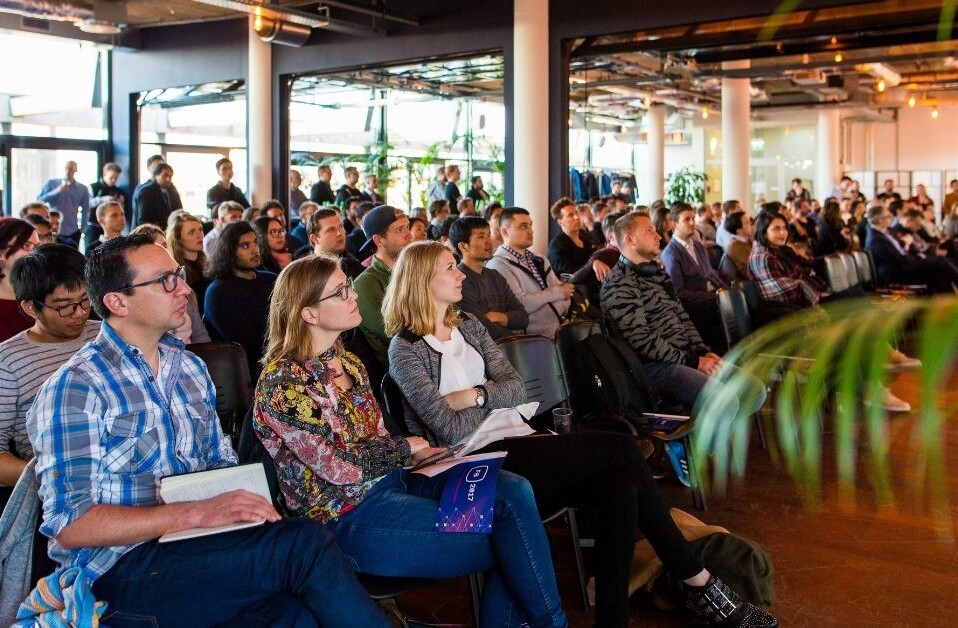
When it comes to growing your startup, research has found that hiring is one of the biggest struggles for first-time founders. Not only do most founders have little to no experience growing a team, but the time-consuming process and talent shortage don’t make the process all that desirable. However, like it or not, solid hiring practices early on are what sets the bar in terms of culture, and ultimately, a company’s trajectory.
If you’re also struggling with hiring, then who better to ask for hiring advice than those who’ve been through it all before. We caught up with 10 successful entrepreneurs in the TQ community — TNW’s tech hub in the center of Amsterdam — to hear their best advice when it comes to growing a team. Read on to find out what they’ve learned to help set you on the right path.
1. Pick mindset over skill set
“I’ve seen people pivot 180 degrees and learn incredible skills but I’ve never seen anyone change their mindset. It’s often said in regards to culture vs. strategy that ‘culture has strategy for breakfast.’ Well, the same is true for ‘mindset has skill set for breakfast.’” — Marco Knitel, Flowmatik
2. Don’t settle too quickly
“Try to have a lot of conversations with different people before you decide on who to hire. Often, you don’t know exactly what the role should entail, especially if it’s a completely new role for your startup. It’s difficult to judge a candidate if you can’t compare them to others. Interviewing many candidates helps you discover what you need.” — Jeroen Bos, pr.co
3. Hire someone temporarily first
“Before we decide to go into a long-term commitment with someone, we first hire them temporarily as a consultant, freelance developer, customer support person, or blog writer, for example. After a few months, we’re able to determine if this person is suited for the job and decide whether we want to continue working with him or her.” — Jules Van Bruggen, Sitly
4. Look for passion, intellectual curiosity, and adaptability
“Find people who are really passionate about the problem you’re trying to solve because they’ll love the work they do every single day. Look for intellectual curiosity and adaptability rather than experience. In the beginning, you need people who can (and like) to work on multiple things at once — someone who loves waking up to a different responsibility every morning.” — Christina Calje, Autheos
5. Hire someone capable of the role now and in the future
“A lot of roles look different a couple months down the road because of product changes, a shift in focus, or automation. Your first employees will need to do a lot of hands-on work in the beginning, like answering customer support tickets. Six months later, however, you’ll have implemented your self-support portal and the employee will need to pivot from building a product to building a community around it. Make sure to look for someone who can take on future roles within your company, but who isn’t too much of a high-level thinker that doesn’t like to do the ‘dirty’ work.” — Roemie Hillenaar, Creative Fabrica
6. Hire someone with a personal growth mindset
“When you’re looking for new employees, hire people who have a positive ‘personal growth’ mindset. They’re able to harness the good and the bad that reality inevitably throws at them and turn it into something constructive. They will be able to manage their expectations and see failure as an opportunity to grow. Always be learning.” — Thomas Moes, Homerun
7. Automatize as much as possible
“Hiring can be extremely time-consuming, so automatize as much of the work as you can. Use AI tools to schedule interviews. There are tools that can pick the best moment from the candidate’s agenda and a selection of interviewers, taking the location and time needed for the commute into consideration! You should also use a good Applicant Tracking System (ATS) where you can add your email templates and make it personal by only adding two to three sentences.” — Joanna Szot, TNW
8. Hire someone that can produce timely deliverables
“Determine if your interviewee is able to produce acceptable deliverables in a fixed timeframe. Getting things done is more important than the mindset of a perfectionist. To remain objective, we’ve come up with a set of tests that simulate everyday tasks and problems. Candidates get a set time frame to complete the tasks, but the trick is to give them too little time to finish all of them. This allows you to see how and what candidates prioritize.” — Mieszko Czyzyk, Open Social
9. Don’t promise the moon
“Salary is always a tricky one at a startup. Watch out not to promise the moon, but make sure that you set realistic expectations for the future. Nothing is more spoiling than a frustrated colleague in the team.” — Pieter van Tilburg, CityHub
10. Look out for red flags
“Almost always, small red flags — issues you see during the recruiting process — become much bigger issues after you make the hire. Spend less time asking structured questions, and more time listening carefully for flags. Flaws you see in the interview process will be amplified 10x once you’ve hired.” — Lars Van Wieren, Starred
Get the TNW newsletter
Get the most important tech news in your inbox each week.




